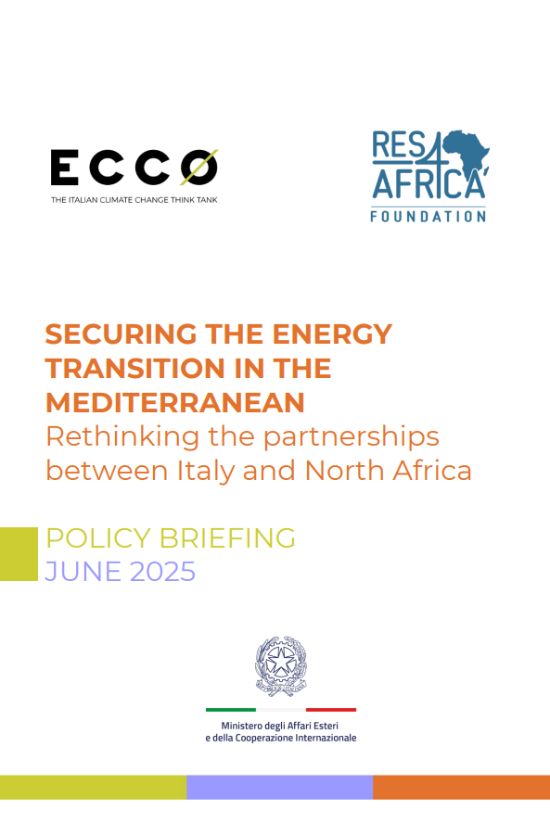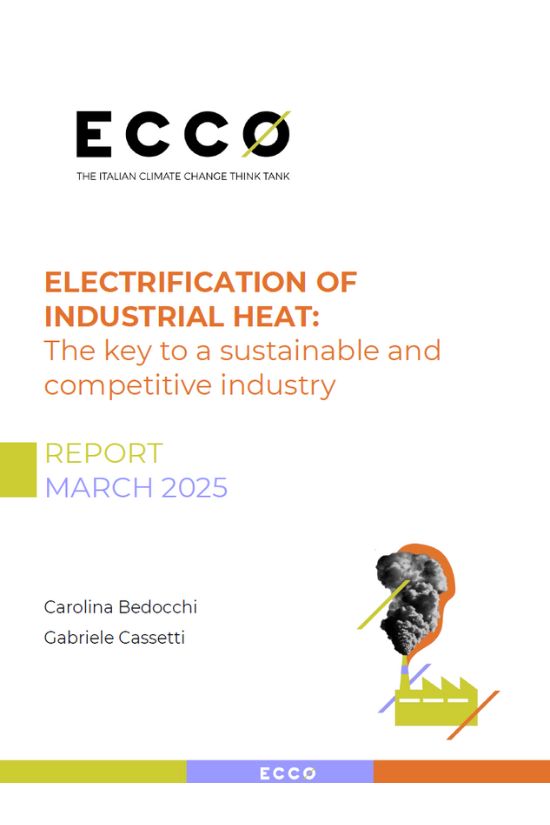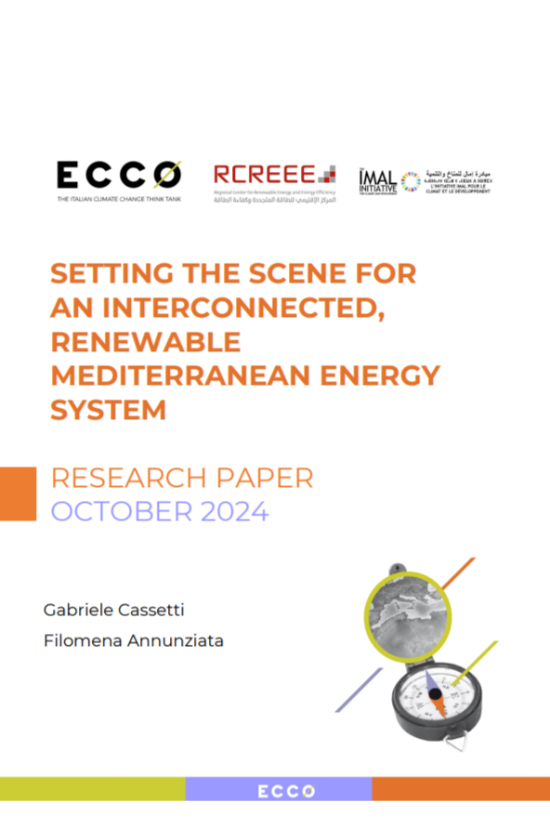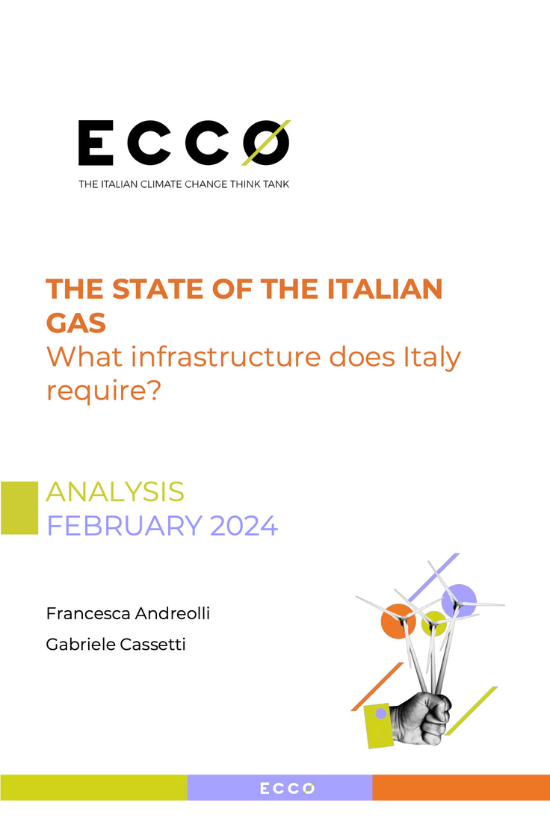Publications
Search
Filters
Authors
/ Alexandra Scott
/ Andrea Ghianda
/ Annalisa Perteghella
/ Beatrice Moro
/ Carolina Bedocchi
/ Caterina Molinari
/ Cecilia Trasi
/ Chiara Di Mambro
/ Chiara Mariotti
/ Chloe Pagliaro
/ Costanza Scano
/ Davide Panzeri
/ ECCO think thank
/ Eleonora Cogo
/ Federico Tassan-Viol
/ Filomena Annunziata
/ Francesca Andreolli
/ Francesca Bellisai
/ Gabriele Cassetti
/ Giovanni D'Amico
/ Giulia Colafrancesco
/ Giulia Giordano
/ Giulia Novati
/ Giulia Signorelli
/ Ilaria Mazzocco
/ Lorena Stella Martini
/ Luca Bergamaschi
/ Luca Iacoboni
/ Mario Noera
/ Marta Lovisolo
/ Massimiliano Bienati
/ Matteo Leonardi
/ Matteo Viola
/ Michele Governatori
/ Nicolas Drago
This policy brief explores the evolving nexus between energy security and energy transition within Italy’s foreign policy towards North Africa, providing recommendations on how Italy can play a leading role – including at a European level – in promoting the energy transition in the Mediterranean region through its relations with North African countries, both at a bilateral and multilateral level.
Decarbonising the industrial sector requires a targeted approach, with solutions that in most cases must be tailored to meet the needs of each industry. Amongst these, electrification appears to be the most competitive option and the only one capable of aligning decarbonisation objectives with energy security needs. This report presents the results of a specific feasibility study on the electrification of two key sectors in the Italian manufacturing industry: food and textiles.
Today, the Mediterranean region's capacity is 90 GW for solar PV and 82 GW for wind . However, the solar and wind potential is estimated at more than 3 TW, meaning that the development of renewables falls short of realising their full potential.
This analysis aims to identify the minimum gas infrastructure Italy requires to ensure national energy security, after the consequences of the Russian invasion of Ukraine have shaped the European market and considering the progress on climate targets. The study was carried out using an optimisation model that simulates the balance between gas demand and supply in the European market for Italy with a daily granularity for 2030, 2040, and 2050.
This policy brief explores the evolving nexus between energy security and energy transition within Italy’s foreign policy towards North Africa, providing recommendations on how Italy can play a leading role – including at a European level – in promoting the energy transition in the Mediterranean region through its relations with North African countries, both at a bilateral and multilateral level.
Decarbonising the industrial sector requires a targeted approach, with solutions that in most cases must be tailored to meet the needs of each industry. Amongst these, electrification appears to be the most competitive option and the only one capable of aligning decarbonisation objectives with energy security needs. This report presents the results of a specific feasibility study on the electrification of two key sectors in the Italian manufacturing industry: food and textiles.
Today, the Mediterranean region's capacity is 90 GW for solar PV and 82 GW for wind . However, the solar and wind potential is estimated at more than 3 TW, meaning that the development of renewables falls short of realising their full potential.
This analysis aims to identify the minimum gas infrastructure Italy requires to ensure national energy security, after the consequences of the Russian invasion of Ukraine have shaped the European market and considering the progress on climate targets. The study was carried out using an optimisation model that simulates the balance between gas demand and supply in the European market for Italy with a daily granularity for 2030, 2040, and 2050.



